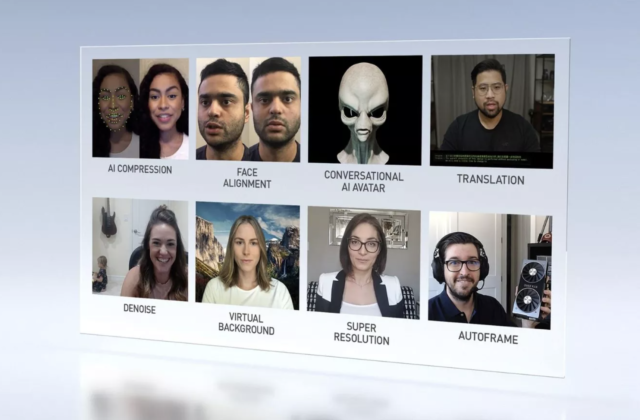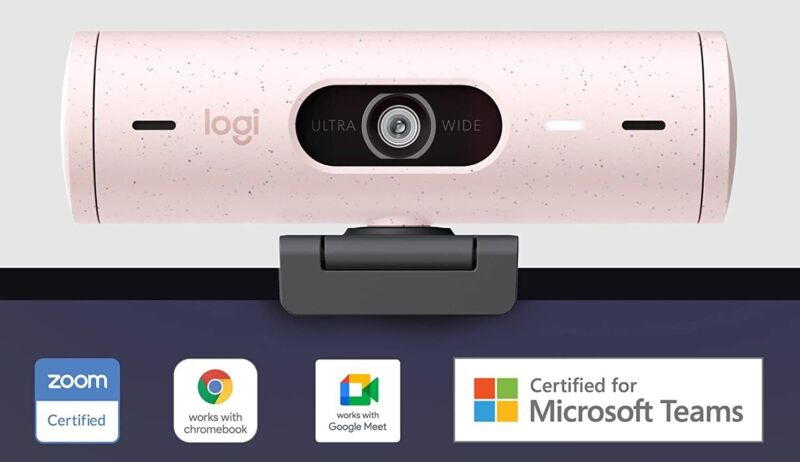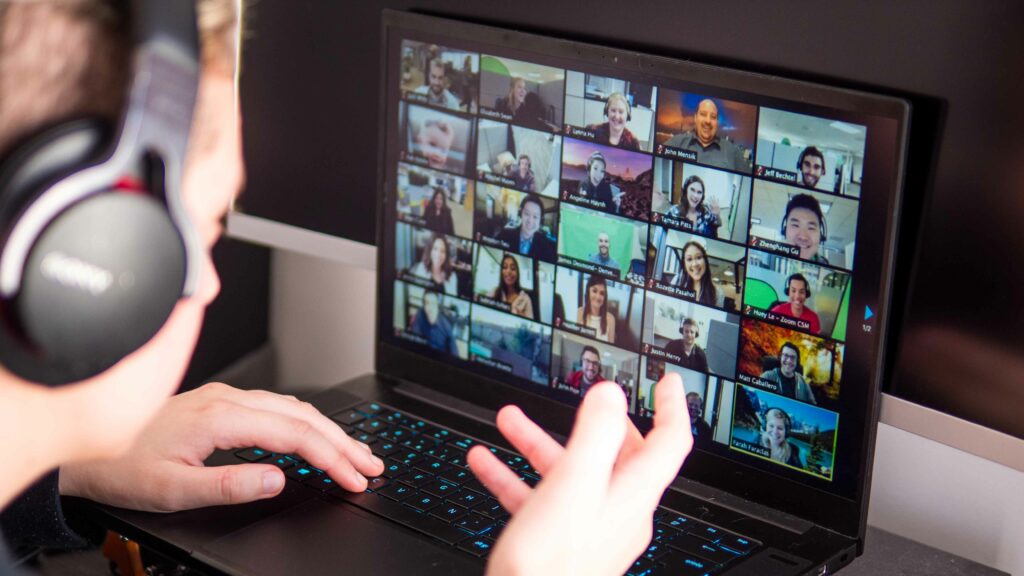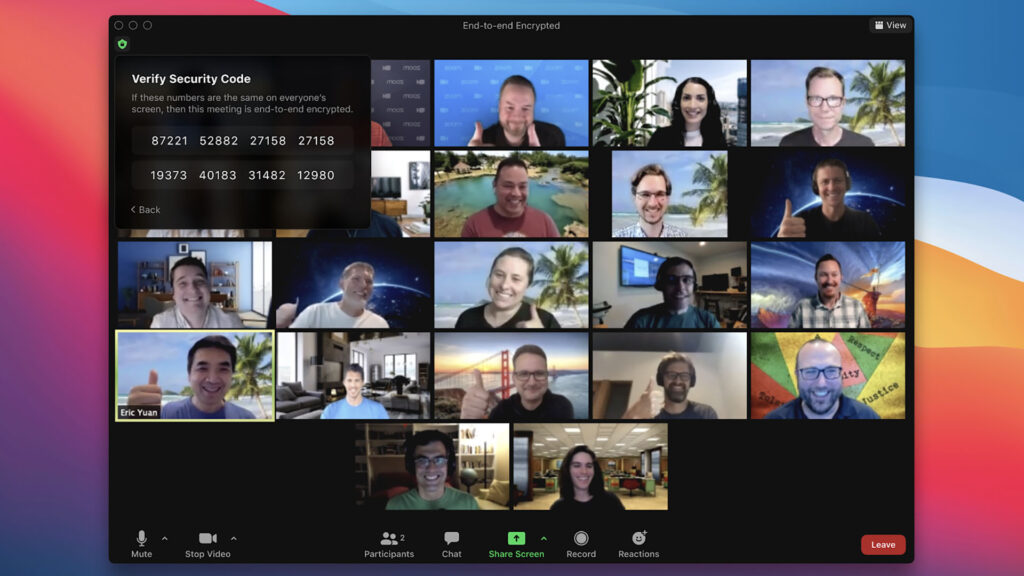
Crédits : NVIDIA
Depuis le confinement et maintenant que la seconde vague de la pandémie de Covid-19 bat son plein dans le monde, les besoins des entreprises et particuliers en matière de visioconférence se font de plus en plus forts. Néanmoins, la qualité de ces appels vidéos peut parfois laisser à désirer, aussi bien à cause de la connexion de certains participants que de la médiocre qualité des webcams et des microphones utilisés. Nvidia l’a bien compris, et vient de présenter, à l’ouverture de sa GTC 2020, une nouvelle solution basée sur l’intelligence artificielle afin d’améliorer drastiquement la qualité des visioconférences. Celle-ci, baptisée Maxine , a été mise à disposition des développeurs, et pourrait ainsi voir le jour sur des solutions telles que Google Duo, ou encore le célèbre Zoom , même si aucun de ces noms ne s’est officiellement déclaré intéressé.
Maxine est accessible via le cloud. Le premier point d’amélioration, c’est l’amélioration de la qualité de la connexion grâce à un nouvel algorithme de compression des vidéos, permettant de limiter au maximum les baisses de qualité ou les décrochages. Concrètement, Nvidia est parvenu à diviser par dix la quantité de bande-passante nécessaire au transfert d’une vidéo, tout en améliorant la qualité de celle-ci. Pour permettre cela, la solution de Nvidia s’appuie sur l’intelligence artificielle, qui va permettre de « recréer » un visage à partir des points principaux récupérés en temps réel sur le visage d’un correspondant. De ce fait, la vidéo transmise est moins lourde, mais la qualité perçue semblera bien meilleure.
Même si cela semble déjà prometteur, ces fonctionnalités ne sont pas les seules. Un algorithme permettra de « recadrer » le regard d’un utilisateur vers la caméra, même lorsque celui-ci tourne le regard, tandis que Nvidia tease même la possibilité d’utiliser des Avatars 3D animés en temps réel. Enfin, on retrouve également la possibilité de changer le fond, sans passer par un fond vert, ainsi qu’une fonctionnalité permettant de recadrer automatiquement la vidéo. On retrouve aussi une nouvelle technologie dont le but est de clarifier le son de la voix en supprimant les bruits parasites. Autre fonctionnalité très pertinente : Maxine est capable de traduire la voix d’un utilisateur en générant des sous-titres en temps réel, de prendre des notes, et même de répondre à des questions avec une voix annoncée comme… « humaine ».
AUKEY Webcam 1080P Full HD... - HAUTE RÉSOLUTION DE 1080P: avec un capteur d'image CMOS 1/2,9", le webcam dont la résolution...
- MICROPHONE STÉRÉO INTÉGRÉ: les deux microphones numériques assurent un son clair et...
- PLUG & PLAY: grâce à USB Classe de Périphérique Vidéo (UVC), vous n'avez pas besoin...
- Compatible avec Windows XP/ 2000 /2003 / Vista/ 7/ 8/ 10, Mac OS 10,6 et Android 5,0 ou...
Journal du Geek

 chevron_right
chevron_right










 Crédits : NVIDIA
Crédits : NVIDIA
